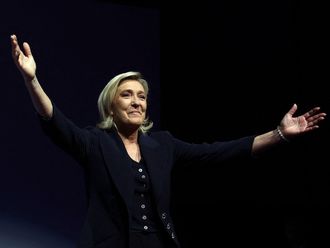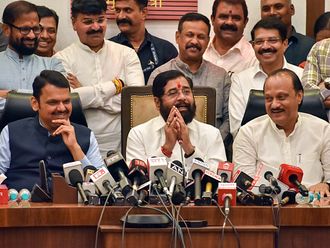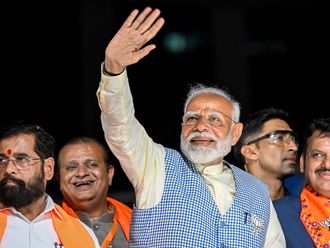The participation of Tunisia in the London Olympics was historic. With 84 athletes competing in 17 disciplines, it was the largest Tunisian Olympic contingent ever. Winning gold, silver and bronze medals, Tunisia earned the highest number of Olympic medals among Arab countries. Oussama Mellouli became the first swimmer in Olympic history to win gold in both pool and open water competitions, having garnered a gold medal in the 10k swimming marathon and a bronze medal in the 1,500m freestyle race, after having already won a gold medal in the Beijing Olympics. Female runner Habiba Ghribi became the first Tunisian woman athlete to get to the Olympic podium after winning the women’s 3,000m steeplechase silver medal.
Even more unprecedented, however, were the controversies which surrounded these two medal-winning performances. The first polemic surfaced immediately after Ghribi’s race. Ultra-conservative voices on Facebook denounced the woman champion’s attire as “skimpy” and “shameful”. Some went as far as to request the withdrawal of her nationality. Although many at home and abroad came to her defence, Ghribi was reportedly “shocked” by the abusive attacks against her.
The second controversy erupted a few days later, again on Facebook. Postings denounced Mellouli for not observing the Ramadan fast, after being seen by TV viewers taking water and energy-drinks in the middle of his gruelling 10k swim race. Mellouli told reporters later it was impossible for Muslim athletes to fast during the Olympics. (Several Muslim scholars have said in fact Olympic athletes were religiously exempt from fasting since they were travelling). Mellouli said his critics “could not understand the pressure of high level competition” and did not appreciate the fact that he was the only Arab swimmer in Olympic finals since 2003.
The controversies about Mellouli’s water drinking in Ramadan and Ghribi’s running gear took on a political and social spin at home and abroad. Blame for the anti-Mellouli postings were levelled at Salafists, who rejected the accusations saying the messages were a “fabrication”. The case of Ghribi turned into a cause célèbre for Tunisian pro-women activists. Attacks against the Tunisian female athlete became a rallying cry for gender equality; especially that Ghribi’s silver medal came just days before the celebration of the National Day for Women in Tunisia.
But the popular and official welcome received by both athletes when they returned home, showed that non-partisan pride in their achievement was much greater than political and ideological spin. Hammadi Jebali, the Islamist chief of government, helped defuse the tension by expressing support to both champions. He said he was “shocked” by the abusive attacks against Ghribi, describing such attacks as symptomatic of “narrow-mindedness” and a “reductive vision of human relations”.
Mellouli declared that the warm official reception made him “forget the death threats I had received”, while Ghribi said she was “proud of this achievement on behalf of Tunisian women.” Facebook polemics were eventually dwarfed by the general national sentiment of pride in both athletes. Using a pun on the first name of the female Olympic champion, sportswriter Ahmad Zouabi wrote that “Habiba Ghri has become the habiba [beloved one] of all Tunisians.”
Predictably, however, the two controversies got a lot of play in the West. One reason had to do with the particular attention given to female participation in the London Games, called by some ‘the Women’s Olympics’ because of the record-number of women participants in this Olympic edition. Western feminist groups also had their word to say. The European Women’s Lobby and the Women’s International Law League in Brussels criticized Arab women athletes who wore the veil while defending Ghribi as wearing a uniform “in total conformity with athletic standards.”
Shahnaz Chaplin-Chinoy, Chair, of Invest in Muslim Women, thinks “much of the world is still perplexed by the intersection between Islam, women and sports.” But in some of the western media reactions there was more sensationalist stereotyping than mere cross-cultural “perplexity”. “Fox news” lamented that Tunisian Olympic medallists are “getting death threats for ‘inappropriate attire’ and ‘inappropriately drinking juice’ ”, while Emmy Award winning sportscaster, Len Berman, warned that “Islamic extremists” want both champions “to be stripped of their medals... I am guessing they won’t be getting new luxury homes and lots of acreage either”.
Within the Tunisian political context, controversies about the two Tunisian Olympians in fact reflected the end of an era: that of the de-facto monopoly in deriving propaganda-value from major sports events. For many years before 2011, there was supposed be only one political “spin-shop” in town: that of the heads of state. The two first Tunisian presidents after independence found it convenient to parade with Olympic medal winners, whether it was the 1968-long-distance champion, Mohammad Gammoudi, or the 2008 swimming medallist, Mellouli. In the middle of the Sidi Bouzid uprisings, in December 2010, former Tunisian president Zine Al Abidine Bin Ali could not miss on a photo opportunity with Mellouli, who had just returned triumphantly from an international swimming event. The recent free-for-all spats on Facebook were a reflection of the changes in Tunisian social mores. The revolution has taught Tunisians to appreciate free expression and endowed them with a rich experience in social media campaigning.
Recent opinion surveys, the latest being last month’s US National Democratic Institute research, confirm the primacy of Facebook as a communication tool for young Tunisians. But despite its popularity, this tool has its limitations. Even if they provide instant gratification and equal opportunity for free expression to today’s digital youth, Facebook and other social media cannot be a substitute for the structured dialogue that is needed to bring together the contrasting visions of identity and way of life at play in today’s Tunisia. It will take time for extreme views to adjust to the mores of open debate. And it will require more than postings on the ‘walls’ of Facebook to build bridges between cultures that have never been introduced before.
Oussama Romdhani is a former Tunisian minister of communication.









